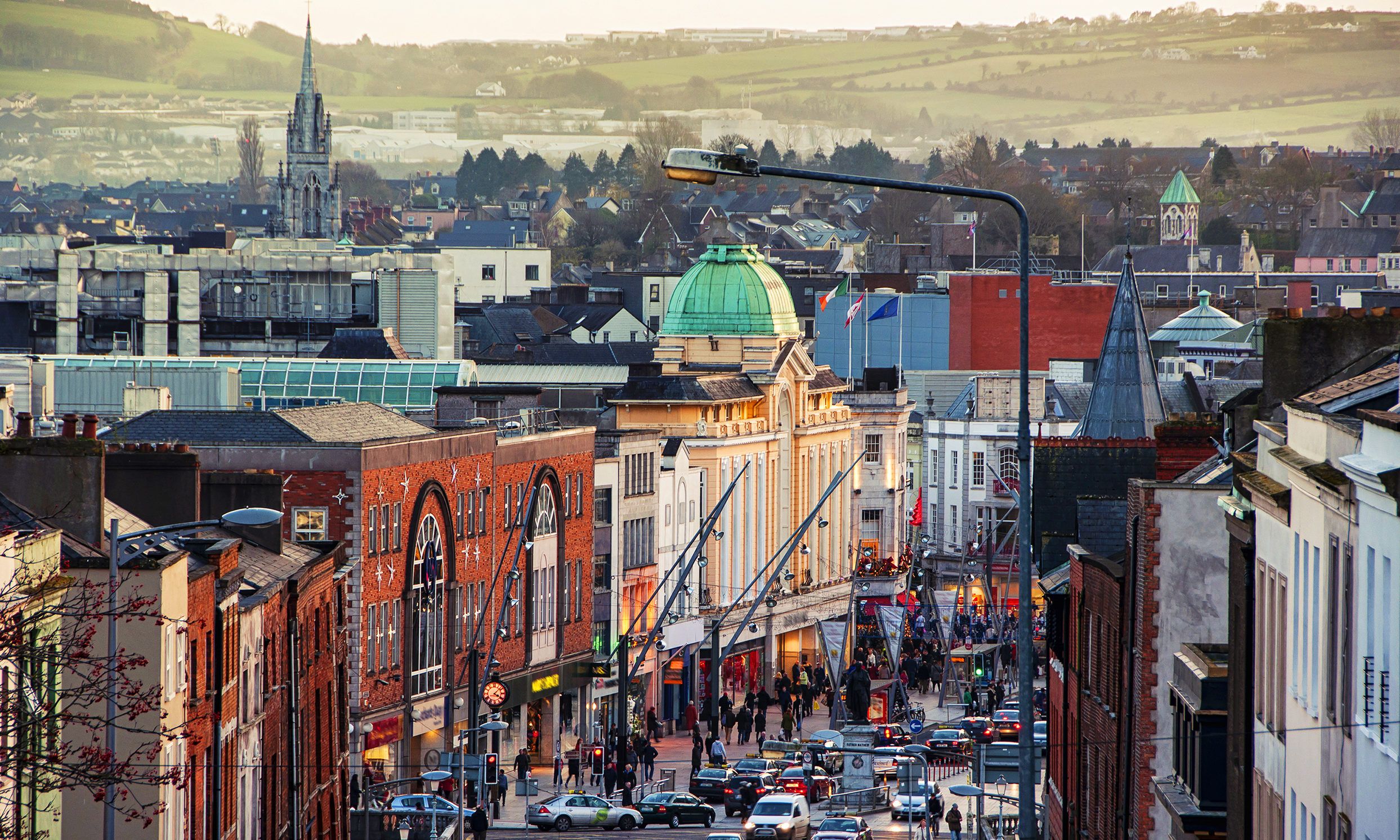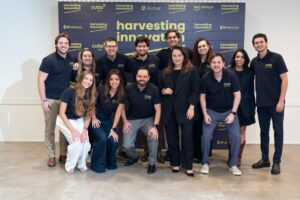Agrifood technology stands to make a big impact to food systems and populations globally and food security is near the top of the list of worthy causes technology could positively impact.
Global hunger is unfortunately on the rise, according to the yearly Global Food Security index from the Economist Intelligence unit, funded by DuPont and released last month. But the latest report revealed a new global leader in food security: Ireland.
The island nation has overtaken the US to make the top of the list as the most food-secure nation in the world.
According to Bloomberg, the index gives weight to a government’s support of agriculture research, among others things, and Ireland, a country the size of the US state of Indiana, has spent more on agricultural research and development in the last five years than the US, a country 88 times larger.
But will this funding for Ireland’s agricultural sector translate to agrifood tech innovation and development in the private sector?
If the rest of Ireland’s tech scene is any predictor, the answer may be yes. Today Ireland has a booming tech industry brought on by a magnetic business tax rate that has drawn some of the world’s largest tech companies to its shores. Silicon Docks, an area that was once largely disused industrial space, now houses the offices of Google, Facebook, Accenture, and Twitter. According to Venture Pulse, fintech and life sciences remain strong sectors for VC investment in the country and KPMG says that 2017 is likely to be Ireland’s second best year for VC investment in the last decade, with deals trending larger and later stage. And resources are being put in place to move some of that tech momentum into agriculture.
Government Support
In the first six months of this year, eight Irish agrifood tech startups raised funding across different categories — Midstream Technologies, Farm Management Software, Sensing and IoT, Innovative Food, Novel Farming Systems, and In-store Retail and Restaurant Tech, according to AgFunder data. This may be a sign of growth as during the whole of 2016, just seven Irish agrifood tech were recorded.
Teagasc, Ireland’s state-backed agriculture, and food development authority is the main research hub for agriculture in the Republic of Ireland. Agronomists and scientists of many disciplines make recommendations to the country’s farmers around disease and pest mitigation and seed varieties.
Teagasc also has a world-renowned breeding program through which it custom-develops seed, especially potatoes, for other climates and countries. The revenue from this operation pays for a substantial piece of the organization’s operations.
Irish agrifood tech startup support has historically centered around commercializing research that starts in universities or other research facilities. Agrifood tech innovation to date has come largely from the country’s agricultural universities such as University College Dublin School of Agriculture and Food Science, Dublin Institute of Technology (DIT), and the Institute of Technology Carlow. Some of these have business incubators such as DIT Houthouse.
This fact, along with the small size of the country, has meant there hasn’t really been one Irish city that’s at the center of agrifood tech innovation. But in recent years, government entities are making moves to stoke a Silicon-valley style venture capital landscape.
Irish startups are supported by and organized around the government office of Enterprise Ireland. This state-funded outfit has been called the largest venture fund in Europe and provides grants from €15,000 to €50,000 to explore an idea and sometimes also matches early-stage funding for startups from private investors.
Enterprise Ireland also has more than 30 offices all over the world to promote international clients and partnerships for Irish businesses. And new resources are being brought to bear to ensure that the island continues to punch above its weight on the global agriculture stage.
Enter the VCs
There are now a few local agrifood tech venture capital investors. Another government entity, the Ireland Strategic Investment Fund (ISIF), recently committed €20 million ($23.5 million) to create the Ireland Agtech Fund (IAF), managed by US agtech VC Finistere Ventures. Though Enterprise Ireland has supported tech and life sciences VC funds in the past that have dabbled in agriculture, the IAF represents the first fund dedicated to the sector in the country.
Other local funds that have made in investments in Ireland’s agrifood tech space are AIB Seed Capital Fund, an early Stage VC with investments in two Irish firms making nutritional supplements and food ingredients from algae.
Kernel Capital Venture Fund, an early stage venture fund working in partnership with the Bank of Ireland focusing on software, telecomms, and chips and sensors, has made investments in sensor company Altratech and biotech for horticulture firm BioAtlantis.
Other resources in place for agrifood tech startups include The Yield Lab, an agtech accelerator based in St Louis, Missouri that launched an Ireland-focused program and investment fund in 2016. Dubbed Yield Lab Galway, after the town in which it is based, the accelerator offers €100,000 in investment to startups and has so far invested in three Irish startups and one English startup.
In an unconventional accelerator model, The Pearse Lyons Accelerator is a four-month mentoring program and accelerator run in partnership with DogPatch Labs that does not take equity, but gives cohort companies access to Alltech’s network and management. The accelerator provides a €15,000 stipend and the possibility of follow-on investment.
Ireland’s Startup Doctrine
But even with the resources available and the newfound energy and talent brought in by tech giants, Irish companies still have a penchant for slow growth over the Silicon Valley doctrine of failing fast.
Finistere’s Kieran Furlong, who is charged with setting up the VC’s Dublin-based operation, says that some cultural change may be necessary but the conservative instincts of Irish founders aren’t all bad.
“There are definitely differences and some of them can be a positive thing. Sometimes it can be a negative thing for the company’s own growth. One of the first conversations I have with entrepreneurs when I meet with them is ‘What kind of business are you trying to build?’” explained Furlong.
Xumei Germaine, founder of microbial crop input and soil remediation platform Microgen Biotech, said it may be the case that Irish founders are simply unaware of the funding available and unexposed to the Silicon Valley way of commercializing technology.
“Overall for Europe, the mentality for investment is not the same. The first three years growing my company as a scientist, I didn’t even know that you could [raise venture funding]. I thought I had to work and prove I have revenue and maybe get some investment based on that.”
Germaine raised her first round of funding in 2015, from Irish and Chinese private investors, matched by Enterprise Ireland. She further raised an undisclosed second Seed Round from SVG Partners and the California-based Thrive Agtech Accelerator in April.
Born in China, Germaine completed her PhD at the Institute of Technology Carlow, in Carlow, Ireland, and founded her business there simply because it was her home. Though she says that Ireland offers her good access to relevant talent from her alma amateur, where her lab is still located, and other technical and agricultural universities.
Plus, she says, customers in her main market of China and other developing nations with soil contamination issues, put more faith in European or American technology.
Resources for Startups
Robbie Walker, CEO of animal feed giant Alltech’s newest acquisition Keenan feed wagons, said that the combination of young talent and a strong connection to farming among most of the population is favorable for Ireland’s startups.
“We’ve got a decent farming footprint and we’ve got a pretty young population who are into digital tech, and so it’s a natural evolution to then get into agtech. I think it is set up for success, but I think the biggest problem is monetizing it and it’s got to be monetized on a global scale because the Irish market is just too small,” said Walker.
And just as all parties agree that Irish agrifood tech startups will need to expand their customer base outside of Ireland, follow-on funding may also need to come from elsewhere as growth-stage funding is thinner on the ground than early-stage funding.
Furlong indicated that Finistere is fully aware that the industry will need other resources to keep startups progressing.
Finistere also plans to find points of synergy between its existing portfolio companies and Irish startups to make sure that Irish companies find markets and partnerships outside of Ireland.
With so much early-stage investment going toward the agtech space, the ultimate path of Irish startups may indeed lead them out of Ireland, since relatively few acquirers exist in country.
But, Alan Hobbs, manager of high potential startups for Enterprise Ireland is unconcerned with this possibility.
“The key for us is that the management, the operations, the key decisions, if possible the manufacturing where it makes sense, the research stay here. So far we’ve been lucky that many of our successes have remained here, but it is inevitable that if they want to get closer to their customer, they may leave.”





